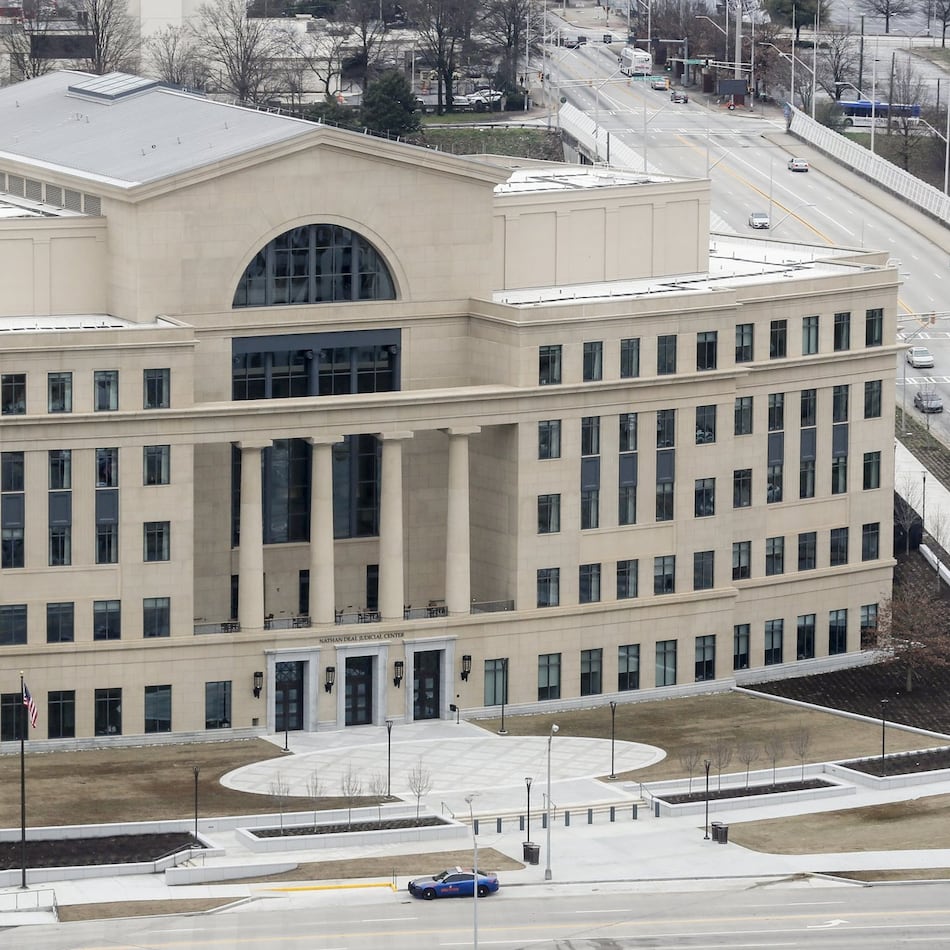Elisabeth Omilami is a member of civil rights royalty who knows what it means to be in the trenches. Unlike her late father, Hosea Williams, she never had to take a beating for drinking from the wrong water fountain or face down a phalanx of Alabama state troopers.
But she did confront the Klan when she and her father marched through Forsyth County in the 1980s. And she put aside her acting career to adopt two of her father’s signature causes — poverty and homelessness — to take over her dad’s social service organization, Hosea Feed the Hungry and Homeless, and has expanded it far beyond his expectations.
The Atlanta Journal-Constitution caught up with Omilami, 58, two weeks ago to talk about her father, the organization’s 40th annual Thanksgiving feeding and politics.
Q: How many people do you feed?
A: We feed approximately 160,000 meals a year. About 10,000 people come to Turner Field and another 4,000 to 6,000 meals go out [at Thanksgiving].
Q: Who qualifies for a meal?
A: All you have to say is you’re hungry. But 65 percent of the people we serve are working people who either have jobs or were recently laid off.
Q: Obviously, you have expanded your operations beyond Thanksgiving.
A: I think the focus of the organization is changing dramatically. We provide dinners on Thanksgiving, Christmas, Martin Luther King Day, Easter. The dinners are now a celebration. They are no longer the focus. We hand out food boxes every Tuesday, Wednesday and Thursday to about 150 families a week. Besides food, we provide rent assistance — we receive about 200 calls a day on that and it is increasing because of the economy. That is for people who normally can pay their rent but have had some sudden loss one month. We also provide utility assistance and in a few cases mortgage assistance.
Q: What is your budget and where does your money come from?
A: Our budget is about $1.5 million and 70 percent comes from donations from individuals. Less than 5 percent comes from government grants. The rest comes from corporations, foundations and churches.
Q: Other than providing a good meal, why are the holiday dinners important?
A: It is a chance for a man or a woman to change their lives. We have a medical clinic, we can care for wounds, they get a new haircut, they get cleaned up and new clothes. Besides medical care, they get spiritual care and now we can help with housing. So if a person really wants to change his or her life, they can do so at those events.
Q: How did your father come to start Hosea’s Feed the Hungry?
A: It got started when a man approached him in front of [a fish eatery] and instead of giving him money, Daddy said, “I’ll buy you a sandwich.” And the man ate through the wax paper around the sandwich, he was so hungry. So Daddy walked across the street to Wheat Street Baptist Church to see the Rev. William Holmes Borders — [City Council President] Lisa Borders’ grandfather — and they had a conversation about what was the responsibility of the church toward the homeless. And they started serving food at Wheat Street Baptist.
Q: Why do you think your father empathized so much with the homeless?
A: It was about social justice and he was a man of action. When he saw poor people couldn’t get a bond to get out of jail, he started his bonding company. I think in this case he thought he would have the opportunity to talk with them and help them get out of their situation. But in the end, I would have to say that many of the people he helped get on their feet became good citizens, but many did not. I don’t think he was happy with that state of affairs at the end of his life. I think there was a bitter sweetness.
Q: You mentioned his emphasis on social justice, but did he think that people didn’t take enough personal responsibility for their situations?
A: He was definitely disappointed [in many attitudes]. You got to get to the point in your life where you stop blaming racism or poverty for why you don’t do well.
Q: Do you have a favorite memory of your father?
A: If I have one, it was about the Forsyth County march [in 1990, when Williams led a civil rights march through Forsyth County — a repeat of the 1987 march in which he faced Klan opposition]. During a meeting with Gov. Joe Frank Harris, the governor said to him, “There will never be another march in Georgia,” and my daddy jumped up and said, “You don’t know who you are talking to.” Then he went over to Talmadge Plaza and he cried ... because even after all this time, a [governor] thought he could talk to him that way.” It is a fond memory because I feel we have to be impassioned by what we do.
Q: Why did your dad run against Maynard Jackson in 1989?
A: I don’t think it had anything to with Maynard. ... They were good friends. ... I think it had to do with making sure the needs of the poor were talked about. It was a symbolic race. He knew he wasn’t going to be mayor. I don’t think he was disappointed in Maynard. I think he was disappointed in many of the black individuals in the city [who had done well economically]. They didn’t pay it forward. [W.E.B.] DuBois talked about how the “talented tenth” would help lift up all black people. Well, instead, the talented tenth moved up and moved on out.
Q: Whom did you support in this mayoral race?
A: I supported Lisa Borders because I wanted to vote for somebody who I felt loved Atlanta. I don’t know who [between Mary Norwood or Kasim Reed] I’m going to support in the run-off election because they haven’t come to talk to me yet. I think they should. I do represent a part of Atlanta that has value. Are we going to be part of the conversation? I can tell you I would not vote for anybody who wanted to criminalize the poor by pushing for arrests for things like panhandling or for sleeping in parks or on streets. We need housing, not jail.
About the Author
Keep Reading
The Latest
Featured

